The internet, like oxygen, is vital to our everyday lives but its availability is often threatened especially in Africa. In 2019 alone, there were at least 14 internet shutdowns, this is up from the 10 shutdowns reported in 2018.
Decentralised virtual private networks (VPN) like Mysterium is creating a network to prevent this by providing a censorships-free internet for everyone.
The benefits of this network were witnessed during the recent #EndSARS protest in Nigeria as the use of Mysterium VPN network increased in the country. The VPN provided the high demand online safety, anonymity and uncensored access to the internet at a time when there were concerns over a partial shutdown of the internet.
Following the shooting of unarmed protestors in Lagos on October 20, VPN searches in Nigeria went up 239% compared to the previous 30 days, according to a digital research firm, Top 10 VPN.
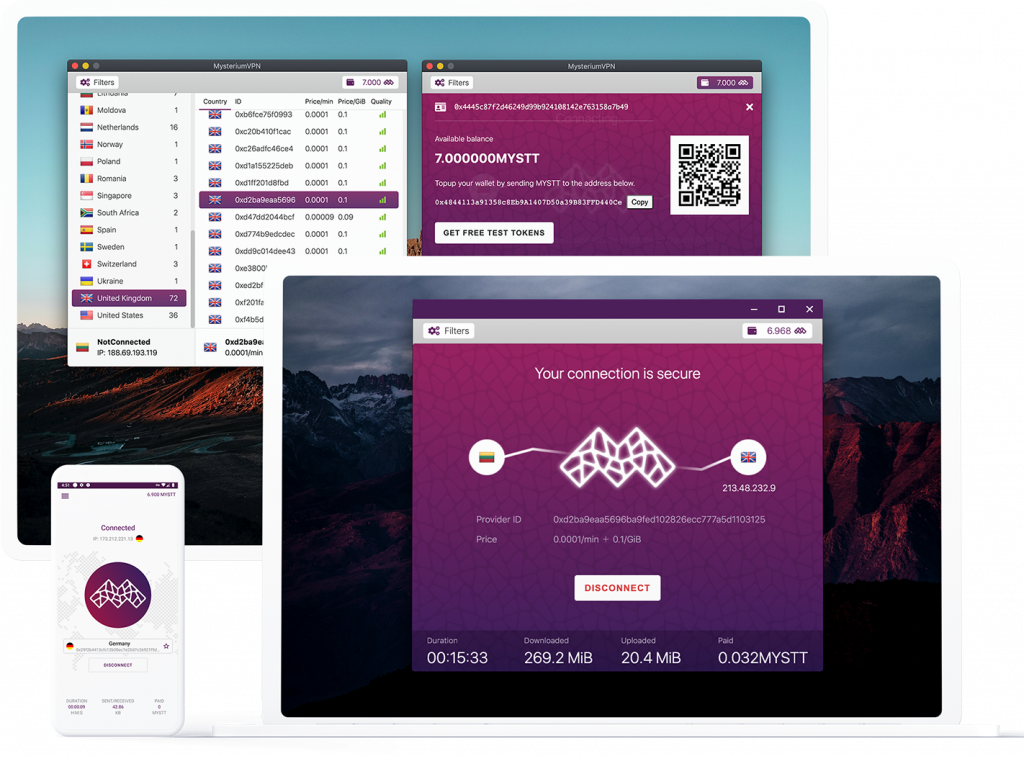

Related post: 4 VPNs That Can Help You Access Blocked Websites in Nigeria
Making it Impossible to switch off the Internet
Internet service providers can access all browsing history of their users, making it possible for governments to either ban, censor internet access or punish some citizens for politically unfriendly use.
VPN lets its users create a secure connection to another network thereby encrypting all the traffic and providing privacy by hiding information from ISPs. They can also hide the user’s IP address and locations from snooping websites.
Open internet is slowly disintegrating in the hands of governments and corporations.
Gbenga, a Nigerian VPN user revealed that he started using a VPN before the protest but explained that the fears of the crackdown have made him use VPN services every time since the Lekki shooting.
He added that “I believe VPN use has increased due to the #EndSARS protest. Not just me, but my friends and social media pals are using VPN in Nigeria for safety on social media especially on Facebook and Twitter.”
Apart from anonymity and privacy, VPN also provides access to fast connections speed and restricted websites and content.


A Community Powered VPN for Everyone
Most traditional VPNs are usually centralised, run and owned by businesses. This according to Mysterium Product Head, Jaro Satkevic still poses some level of vulnerability as the operators can collect logs of their consumer’s browsing history.
“Trusting a centralised VPN is like trusting your Internet Service Provider (ISP). The problem is a centralised storage of your logs.
Jaro Satkevic, Mysterium Product Head
He further explained that “most of them have a ‘no-logs policy’, but it is really hard to recheck, and there are many stories when hackers got access to user browsing logs collected by VPN companies.”
Mysterium, however, is a decentralized VPN, meaning that since its exit nodes are hosted by a decentralized community, it’s not possible for one centralized authority to hold users browsing history.
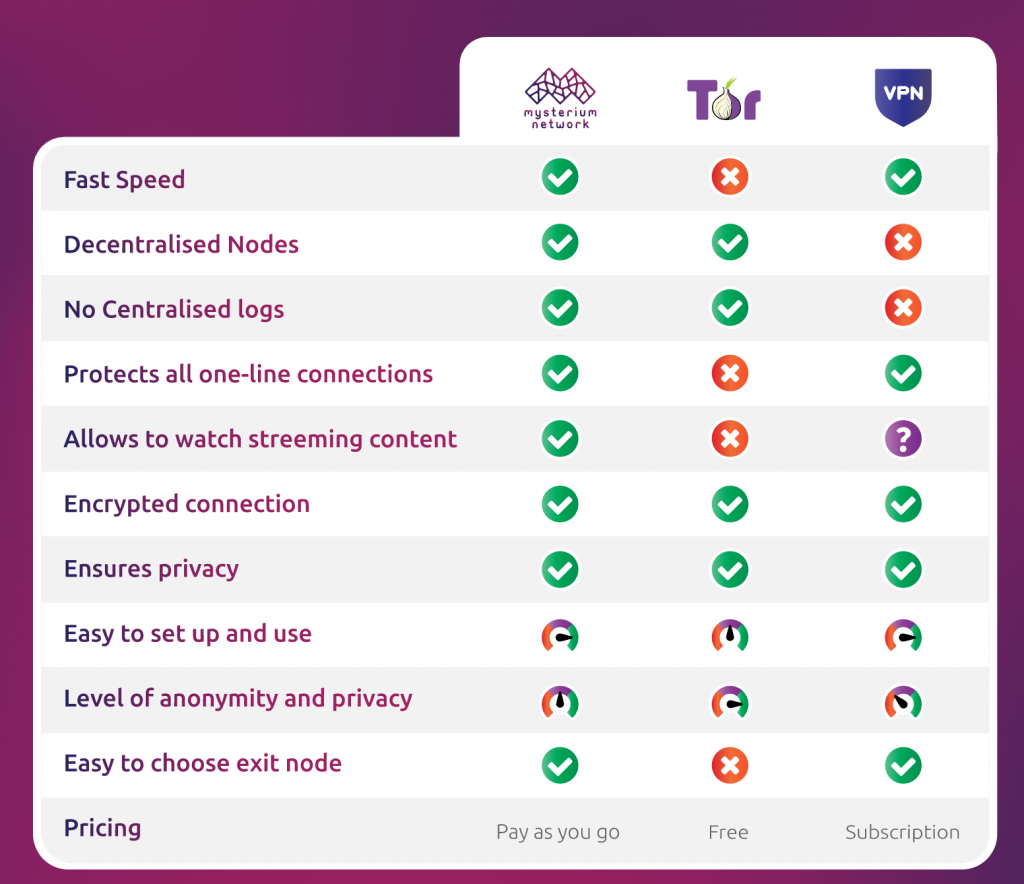

According to Savannah Lee, a communications manager at Mysterium, the company replaces the traditional role of a VPN which is like a centralized service with a decentralised model that allows you connect to residential IP addresses around the world.
“Big VPN providers use servers around the world that have business run and owned. And so when you connect to the VPN you select one of the centralized servers that are business owned and manage but with a decentralized VPN everyday People replace the centralized service so you can connect to residential IP addresses around the world.”
She added that “it’s kind of like shifting the business model to a people-powered VPN. So when you use VPN and select from the drop-down country list, you’re actually connecting to people like me who run a node in our own home.”
Technically, the mysterium network runs on mostly residential nodes, which is harder to track, detect or censor. This means that the more nodes that join, the faster, stronger and more censorship-resistant it becomes.
Related post: #EndSARS: 4 Ways You Can Remain Online During an Internet Shutdown
Start using Free VPN in Seconds
The Mysterium VPN is one of the fastest VPN services you can sign up for. The process to join the network is so easy that you can start using VPN in less than a minute.
The app is currently free as the network is running on a test net. It has already registered over 30 million sessions, with the UK and US having the largest traffic because of their strong internet laws.
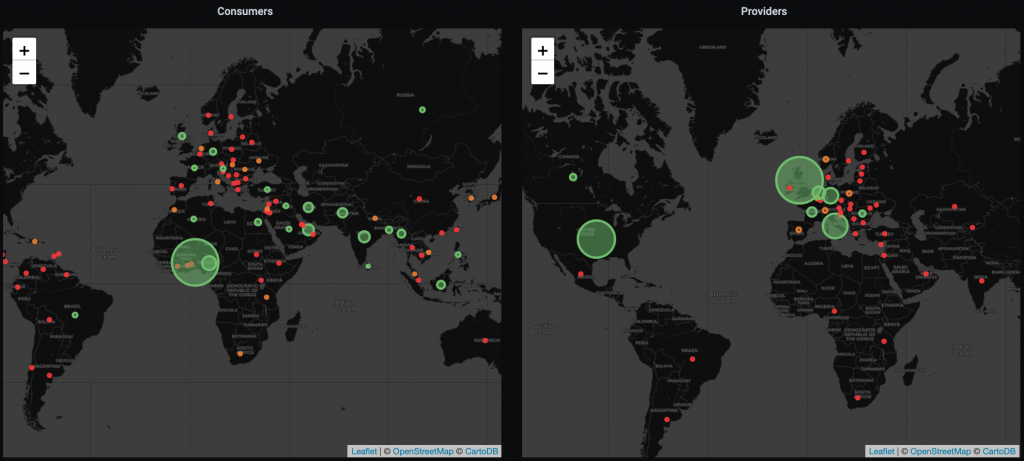

Lee explained that the network is running on using Ethereum’s compatible token called MYSTT (testnet tokens to help transact on the app), but by early December the network will be transitioning to a new testnet environment which will allow users top up their accounts with a cryptocurrency of their choice, such as Bitcoin, Litecoin, Ether etc.
She added that once the VPN launches fully (transition to mainnet) it will be truly anonymous as the main payment mechanism in the core network will be crypto P2P, using a pay-as-you-go model. This means that payment on the network will be from users to node providers across the world for the time that they use the node.
Mysterium emphasizes that due to its PAYG structure there are no lock-in fees, contracts, no credit cards and no subscription model – like the traditional VPN.
In the meantime, Mysterium has been working to attract users, targeting groups of people who have limited internet access in their countries. According to Lee, the company wants to create a network of people across the world to run nodes and provide this VPN service.
Earn by sharing your connection
Since Mysterium is a decentralised system, anyone can apply to be a node provider and get paid when traffic passes through their node. Currently, the network has two separate bounty programs for node runners, the first is for UK/US/Europe and a second for Africa and the rest of the world.
The app has a wallet which can be used to store crypto earned by sharing your node or bandwidth.
Anyone can participate and run a node on their computer or Raspberry Pi but the global bounty only pays out the Top 3 node runners from each country.
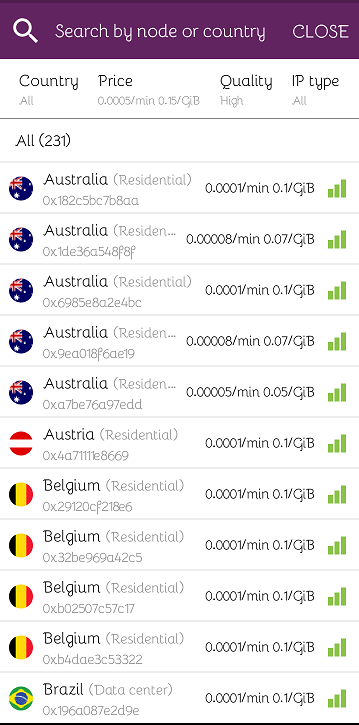

However, Lee explained that by early December, node runners will receive their MYST payments directly into their accounts.
She added that once PAYG payments fully launch, everyone running a node will be able to charge whatever they like. At the time of writing, CoinGecko lists MYST at about $0.12.
Highest level of protection
The Mysterium Network is a permission-less system. This means that anyone is allowed to join. While this is good, it could also lead to increased risk in that it can be used for illegal activities.
To remedy this, Lee revealed that the company provides a whitelisting option to node runners who would like extra protection. This allows traffic from verified and known sources to pass through a node. However, this may result in lower earnings.
like the internet we can’t actually control what people do using the VPN
Savannah Lee, communications manager at Mysterium
She added that there will be a reputation system where all users stake a little crypto to join the network. In this system, Everybody is supportive and accountable to each other to avoid people coming in and doing whatever they like. She also revealed that the company has published a guide that provides in-depth guidance on exit nodes.
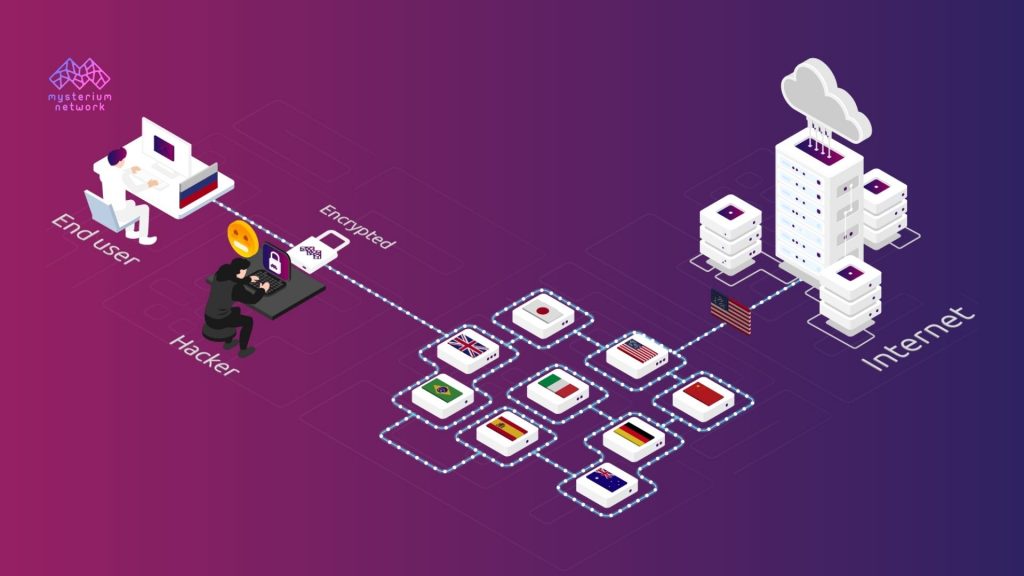

Apart from whitelisting to protect the node runners, Mysterium uses a P2P [peer-to-peer] crypto payments which adds an additional privacy layer. However, while using the app on Andriod, it requests permission to access personal spaces like gallery and storage.
Lee clarified that Mysterium doesn’t collect any form of data through the request. She explained that the permission helps maintain personal identity (private keys) and other related information after an app upgrade.
She added that if the app is deleted/updated and then reinstalled again, this information would be lost if it’s not saved in a device’s external storage. So people would lose their private keys and potentially money.
Other protection includes the best available VPN protocol – WireGuard protocol and OpenVPN as a backup, to offer the highest level of encryption possible.
In Summary
Internet freedom is important and the VPN can help keep it. While both regular and decentralised VPNs both leverage networks, regular VPNs offer anonymity while decentralised VPNs like Mysterium are best for censorship-resistance and helping you access the content you want.
This way you can stay anonymous while connecting to any country that you want at any place and time.






